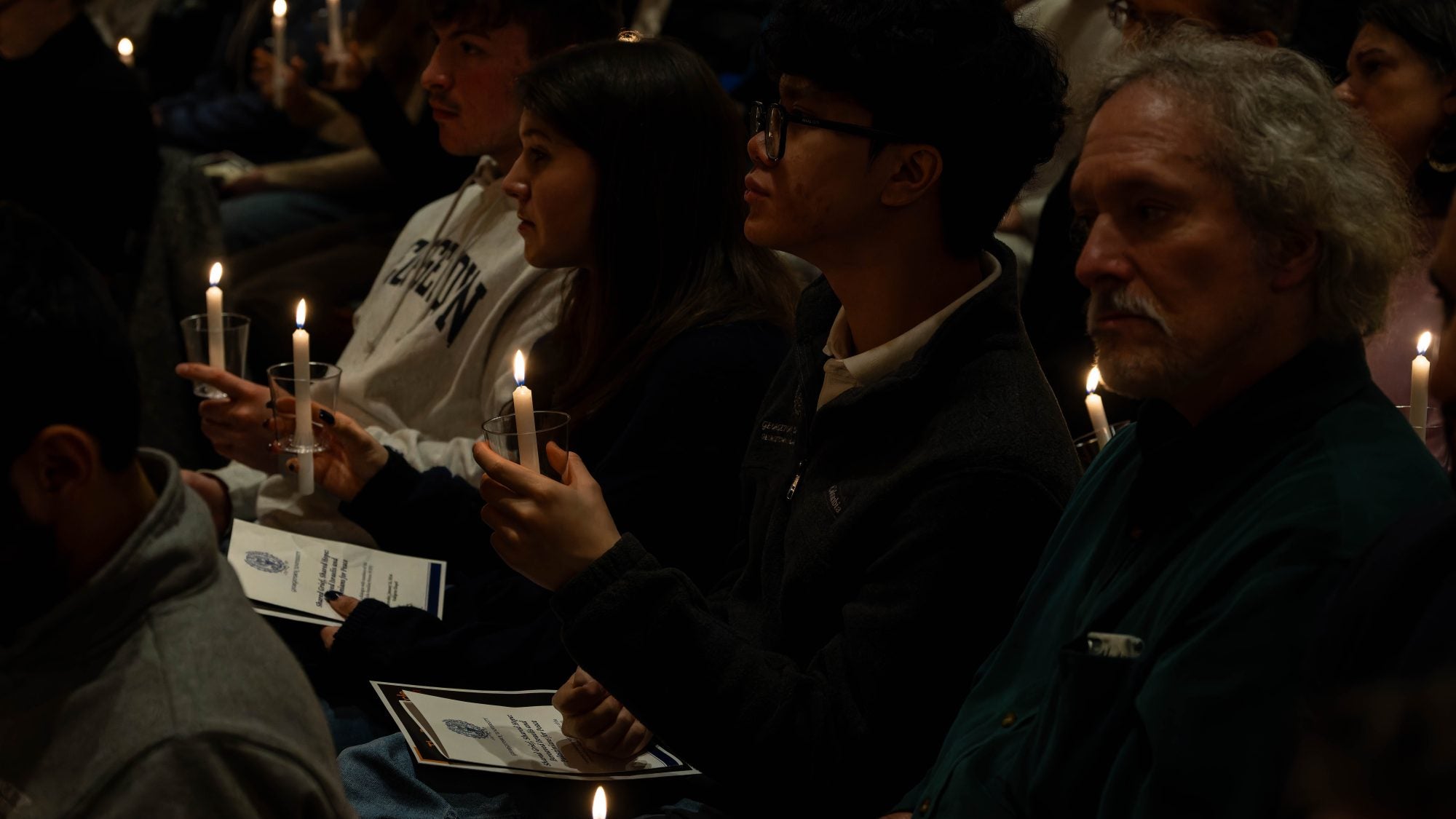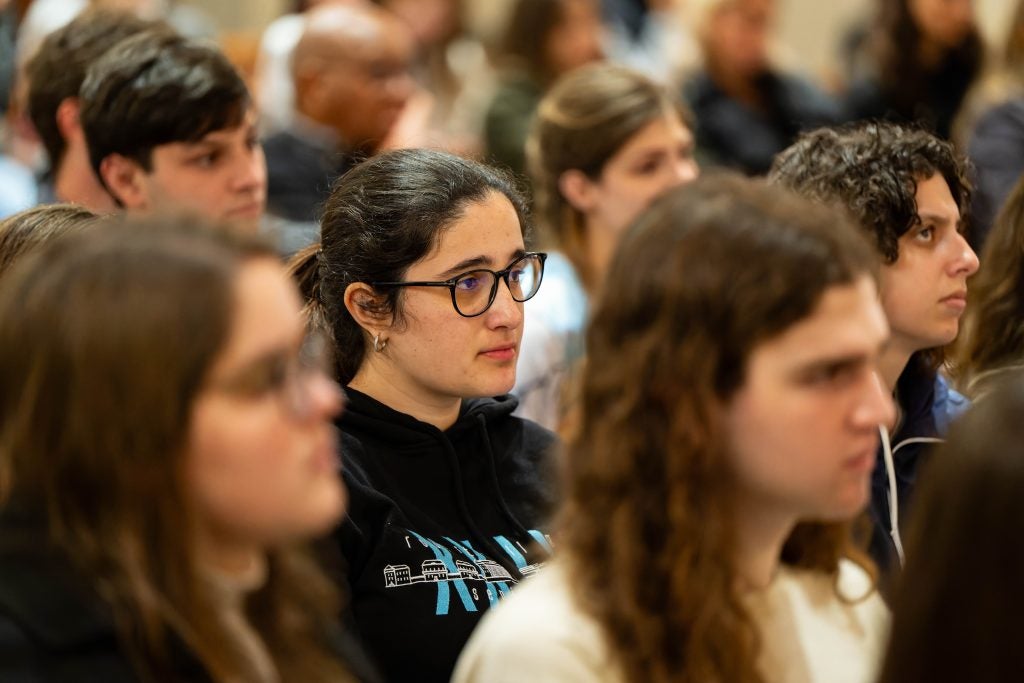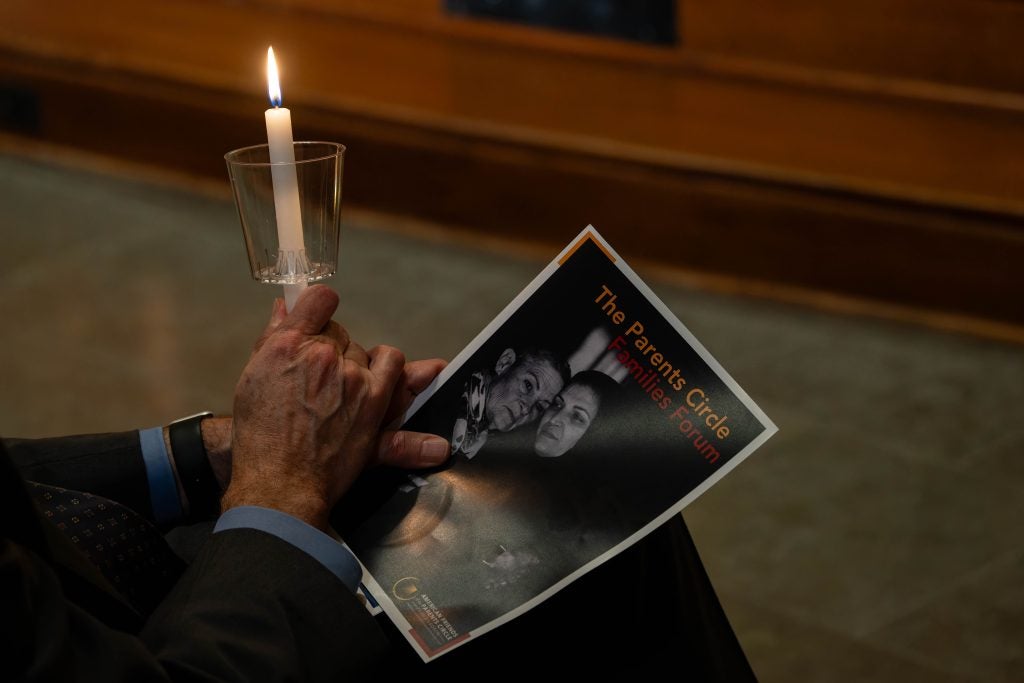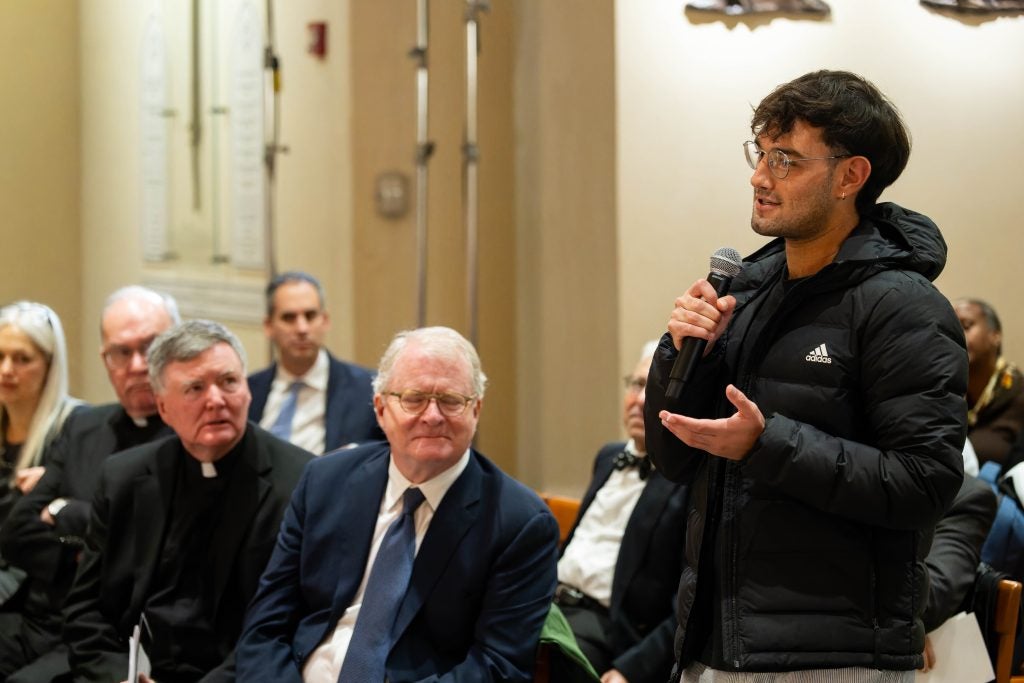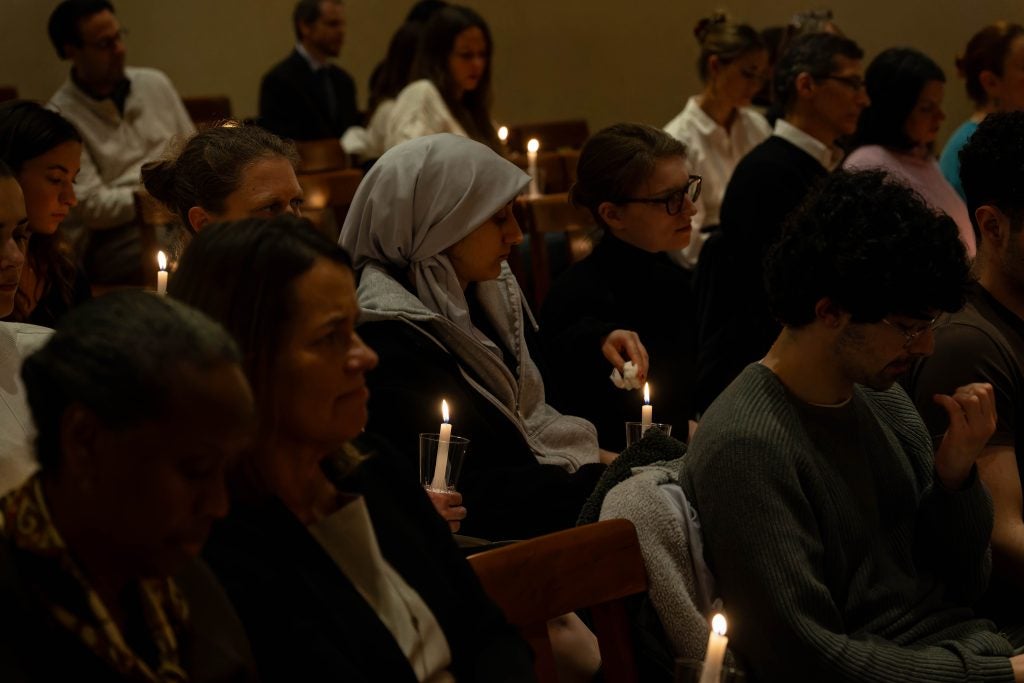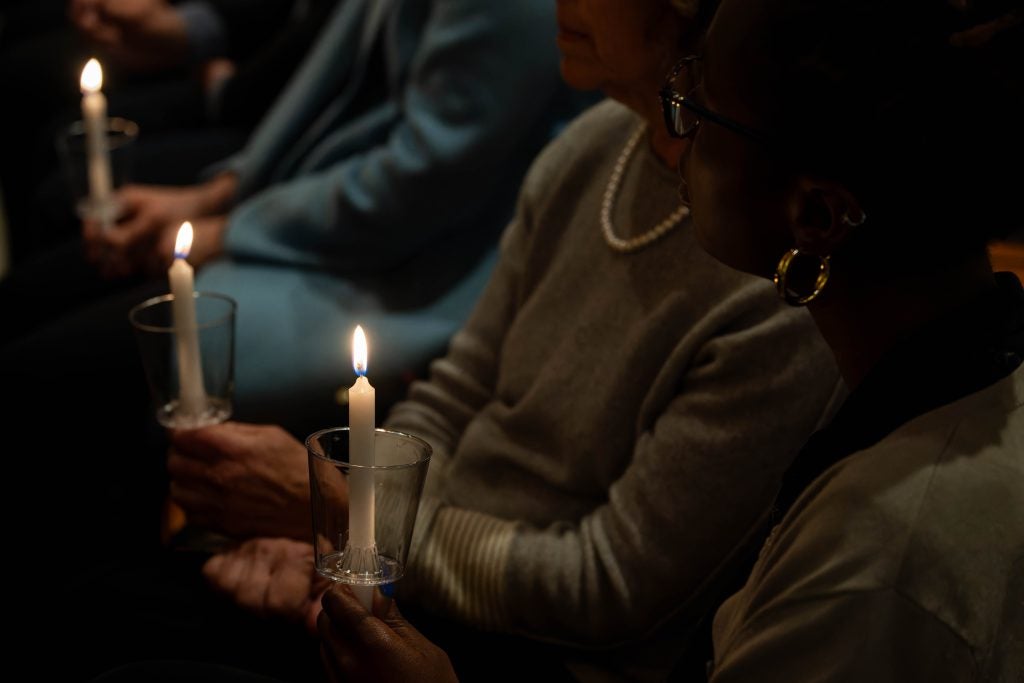On Jan. 25, Georgetown hosted a dialogue between an Israeli mother and a Palestinian brother who both lost family members in the long-standing conflict and are working to build peace and reconciliation between Israeli and Palestinian communities.
The two speakers represented the Parents Circle-Families Forum (PCFF), an organization made up of 700 Israeli and Palestinian families who have lost an immediate family member to the conflict. Since 1998, Israeli and Palestinian members have shared their stories side-by-side at events and educational programs in a joint effort to foster dialogue, empathy and reconciliation.
At the event, “Shared Grief, Shared Hope: Bereaved Israelis and Palestinians for Peace,” hosted by Georgetown’s Office of Mission & Ministry, the speakers discussed their losses, grief, path toward forgiveness and the current conflict with students, faculty, staff and religious leaders in Dahlgren Chapel, a sacred space on the university’s main campus.
“There are 700 other families like Robi’s and Mohamed’s that have been affected by the conflict, all of whom have lost a loved one to the conflict, and all of whom have chosen an incredible path of reconciliation rather than revenge. That is no small thing to say,” said Shiri Ourian, executive director of the American Friends of the Parents Circle-Families Forum, which works to humanize the conflict in the U.S.
Georgetown has had ties to the organization since its early years. In 2008, the university invited a delegation of members from the PCFF to meet with leaders from the university’s Conflict Resolution program and Center for Public & Nonprofit Leadership in Washington, DC.
In his opening remarks, Georgetown President John J. DeGioia spoke about the importance of dialogue, even when it may seem difficult.
“There is no more urgent time for us to recognize the inherent dignity, the shared humanity of each person, each Israeli and each Palestinian, each member of our community,” DeGioia said. “There is no more important moment for us to reaffirm a commitment to the common good — sustained by the possibilities that can only be realized when we work together,” he said.
